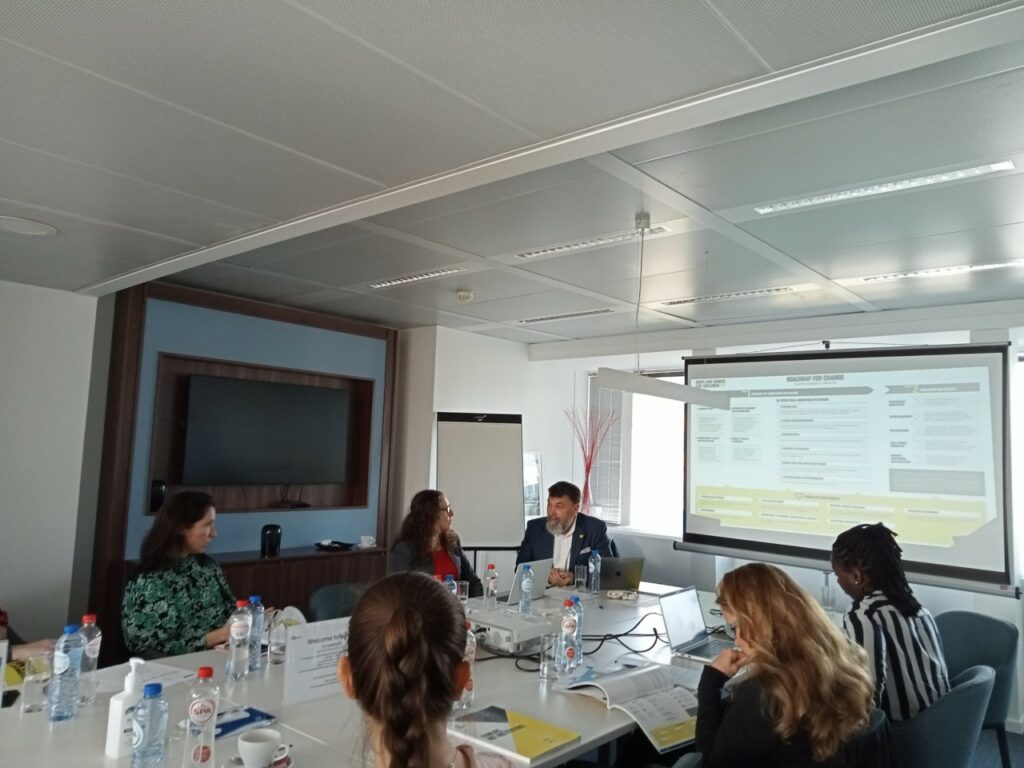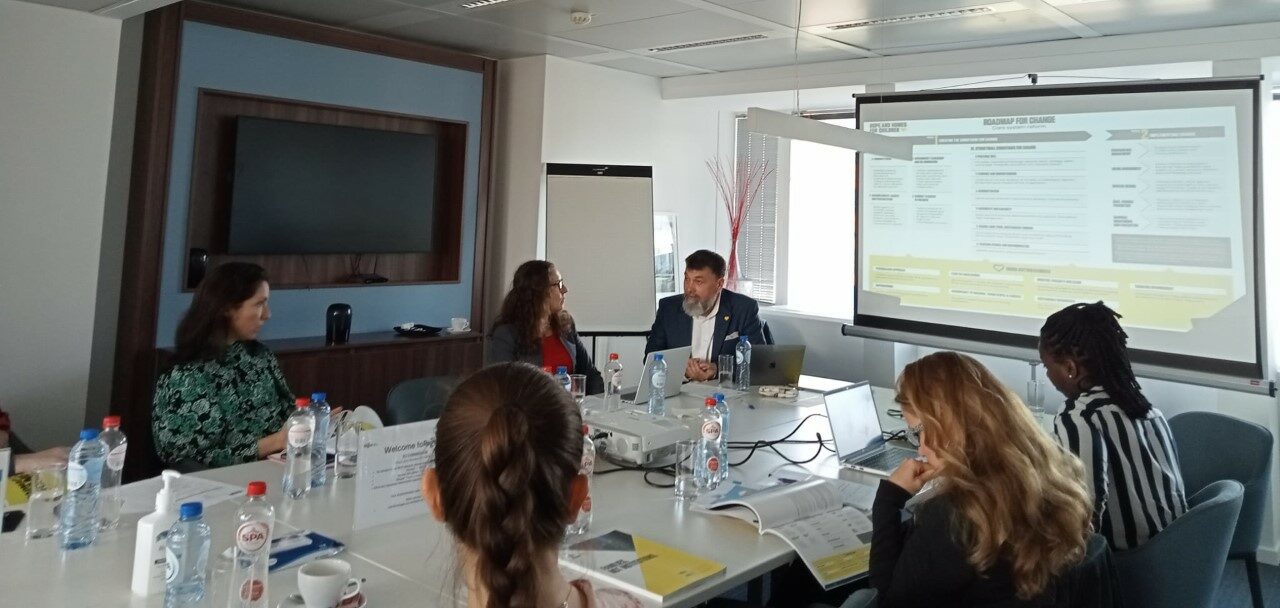And why the EU is a vital catalyst to achieve it
On 25 October, Hope and Homes for Children hosted key European Union stakeholders at the Brussels launch of our publication, ‘Families. Not Institutions’.
At the launch, the group discussed the European Union’s part to play in paving the way for robust child protection and care systems across the world and ensuring no child grows up in an institution.
In times of global, social and economic crises, it is all too common for national governments to put aside global ambitions and financing of social policies, such as reform of child protection and care systems, in favour of issues perceived as more urgent. In truth, this is the wrong approach.
We discussed this pressing nature of child protection and care reform at the publication launch in Brussels.
The long-term benefits of breaking the cycle of inequality are far greater than the cost
Ensuring that the most vulnerable people have access to essential services and fair living conditions improves the health, education and economic outcomes of a population, contributing to the overall prosperity of society as a whole.
A sustainable, resilient national child protection and care system is a central pillar of a fair society. It provides a protection framework for the children who need it the most. It also helps to better support families and communities in caring for children and providing the loving environment they need and deserve.
In particular, in the case of children growing up in orphanages, Otto Sestak, HHC Head of Learning and Engagement at Hope and Homes for Children, highlighted during his presentation of the publication:
‘Children in institutions are a representation of the community they come from. They enter institutions for diverse reasons, including poverty, education, inequalities, marginalisation, unequal distribution of justice.’
However, too often, child protection and care systems are chronically underfunded and inadequately resourced. Their reform also, too often, is an afterthought in policy-making.
Still, the reform of national child protection and care systems must be supported by resolute political will from policymakers in order to create change. Political commitments must, in turn, be backed by long-term, sustained financial planning.
A global response to a global crisis
Today, the world faces many challenges. Global inflation, deepening and worsening inequalities, food insecurity, mounting geo-political turmoil, and the threat of climate change are at the centre of worries of populations across the world.
Not one country can act alone and weathering these hard times will require global action. To remain at the heart of the global agenda, children’s rights and child protection will need global champions, and thought leaders able to steer the conversation in the right direction, hold national governments to account, and support the implementation of reform. The European Union is a formidable candidate to fulfil this role.
The European Union is a compelling champion of global care reform

In its role as an influential policy-maker, the EU adopts, supports and funds legislative and policy initiatives and frameworks in 27 European countries. In recent years, the EU has taken strong stances in support of the transition from institutions to family and community-based care systems, including prohibiting the use of EU funds in opening or refurbishing institutions within its borders.
In its role as the largest international donor, the EU can multiply its commitment to care reform far beyond its borders, by prioritising the reform of child protection and care systems in its development and cooperation programme, for example, in the current Neighbourhood, Development and International Cooperation Instrument.
With this in mind, the EU is perhaps the single most impactful catalyst for global care reform. As stated by Irina Papancheva, HHC Head of EU Advocacy:
‘After years of advocacy, child care reform has been included in all relevant EU policy and funding instruments. It is now time to ensure they are implemented.’
Harnessing the potential of the EU in ending the institutionalisation of children
How can we ensure the potential of the EU as a catalyst for care reform is fully be harnessed?
Among the participants to the launch, Mr Benoit Van Keirsbilck, Member of the UN CRC Committee, reminded the participants that:
’Child care reform is not an option, but an obligation of the States. It is embedded in international law’.
This fully enshrines the need for care reform in a global context. With ever bigger ambitions to drive the global agenda for more sustainable and fair development, the European Union is currently strengthening its commitments to children’s rights internationally.
This commitment was highlighted by the European Commission Children’s Rights Coordinator, Marie-Cécile Rouillon during the discussion, in particular in response to the recently adopted EU Strategy on the Rights of the Child:
‘The commitment of the EU to protect children’s rights is not limited to the EU borders. The EU Strategy on the Rights of the child includes the commitment to respond to the needs of the most vulnerable children, especially children at risk of poverty and children with disabilities.’
Marie-Cécile Rouillon, Children’s Rights Coordinator, DG JUST, European Commission
The EU, and all concerned stakeholders, must work together to achieve global care reform
Integrated action, addressing the wide variety of needs of vulnerable children and families, and looking at the thematic issues linked to the reform of child protection and care systems, must be at the heart of global efforts to make change.
As highlighted by Patricia Pennetier, children’s rights focal point at the European Commission Directorate-General for International Partnerships:
‘Intersectionality has been a recurrent theme in the discussion. It is reflected in the strategy but also in the Youth Action Plan in EU External Action. All children’s rights are interconnected. Institutionalisation is linked to many other areas, such as inequalities, lack of opportunities, climate change, child labour and children in the justice system’.
It was made clear, in the course of the debates, that comprehensive policy and legislative frameworks and the unlocking of funding streams were crucial steps to reform. But these steps require resolute implementation, monitoring and evaluation, as well as cooperation across the board between EU and international decision-makers, national governments, civil society, practitioners, academics, as well as, crucially, participation of children and their communities.
Marie Raverdeau, EU Advocacy Officer
Download 'Families. Not Institutions'
